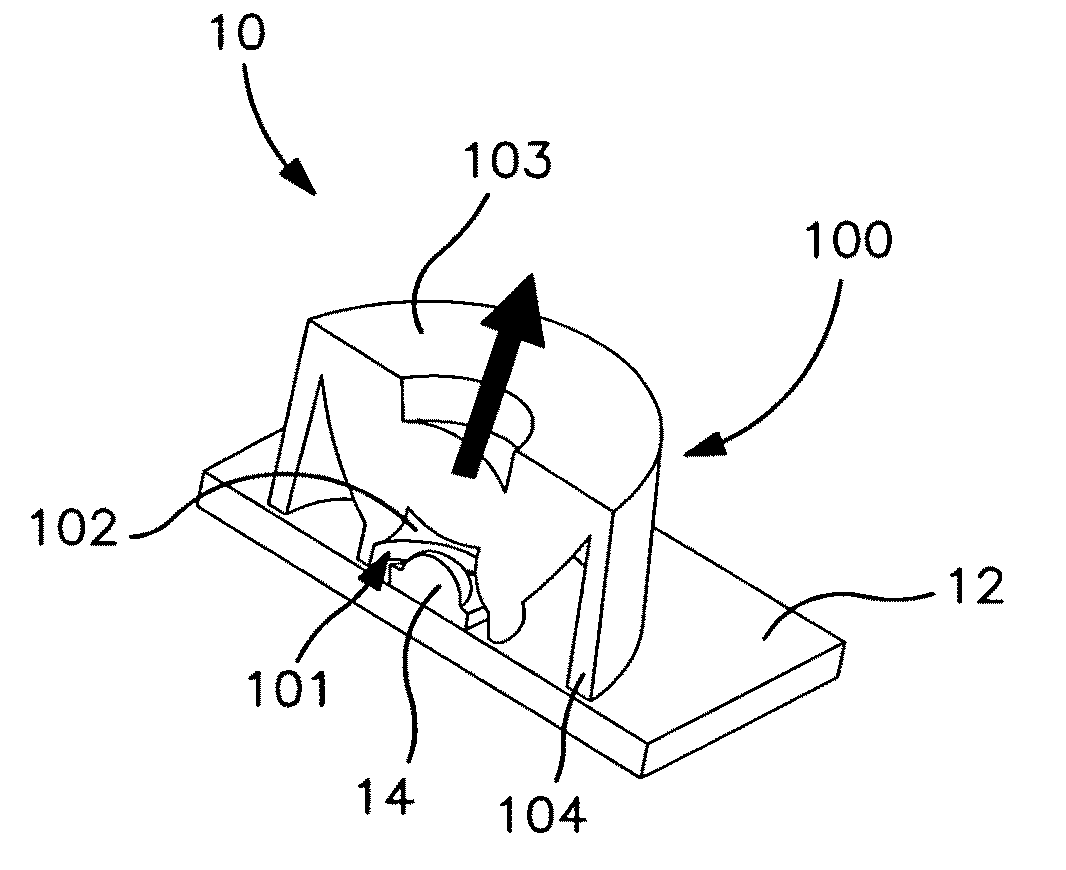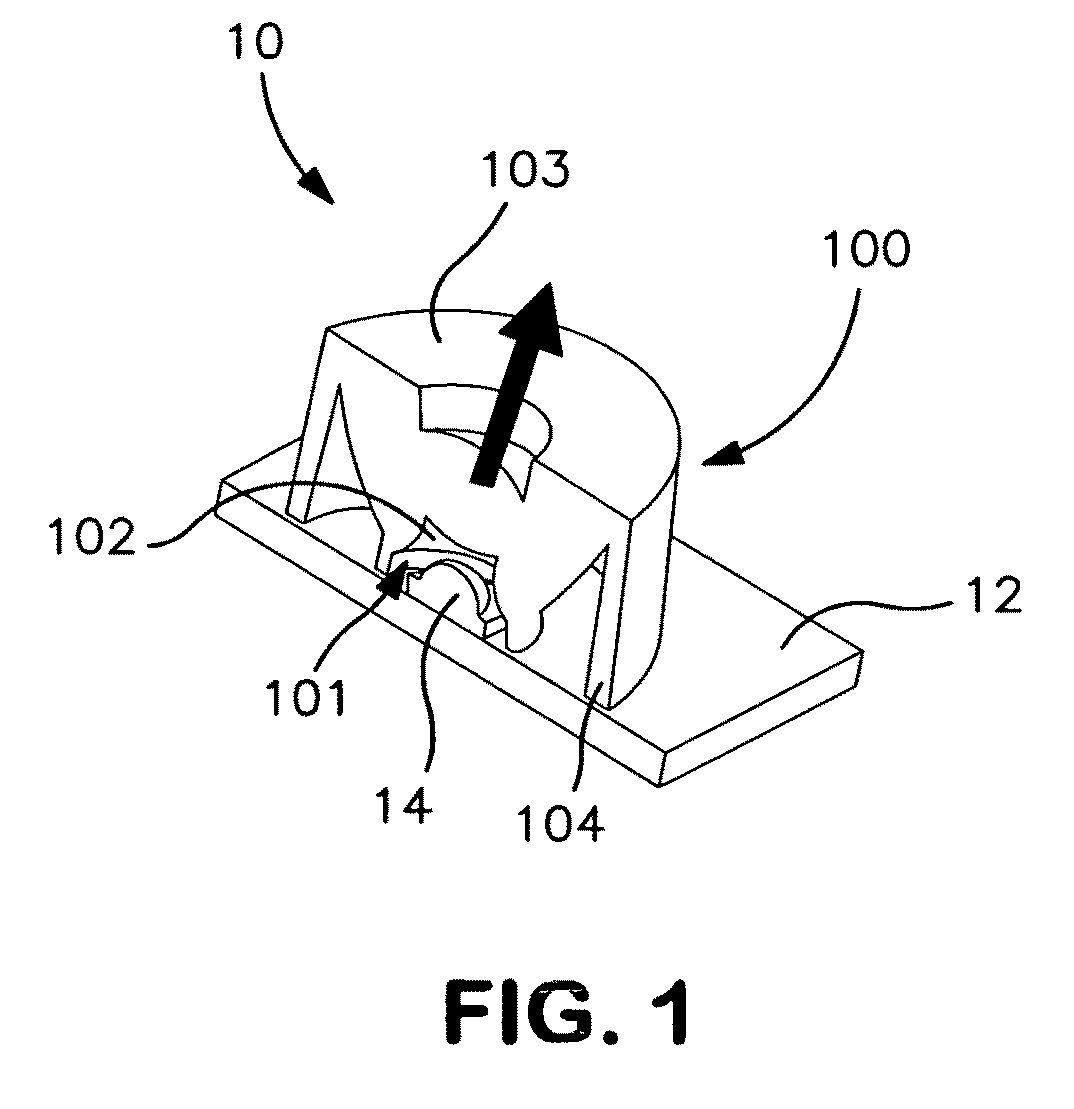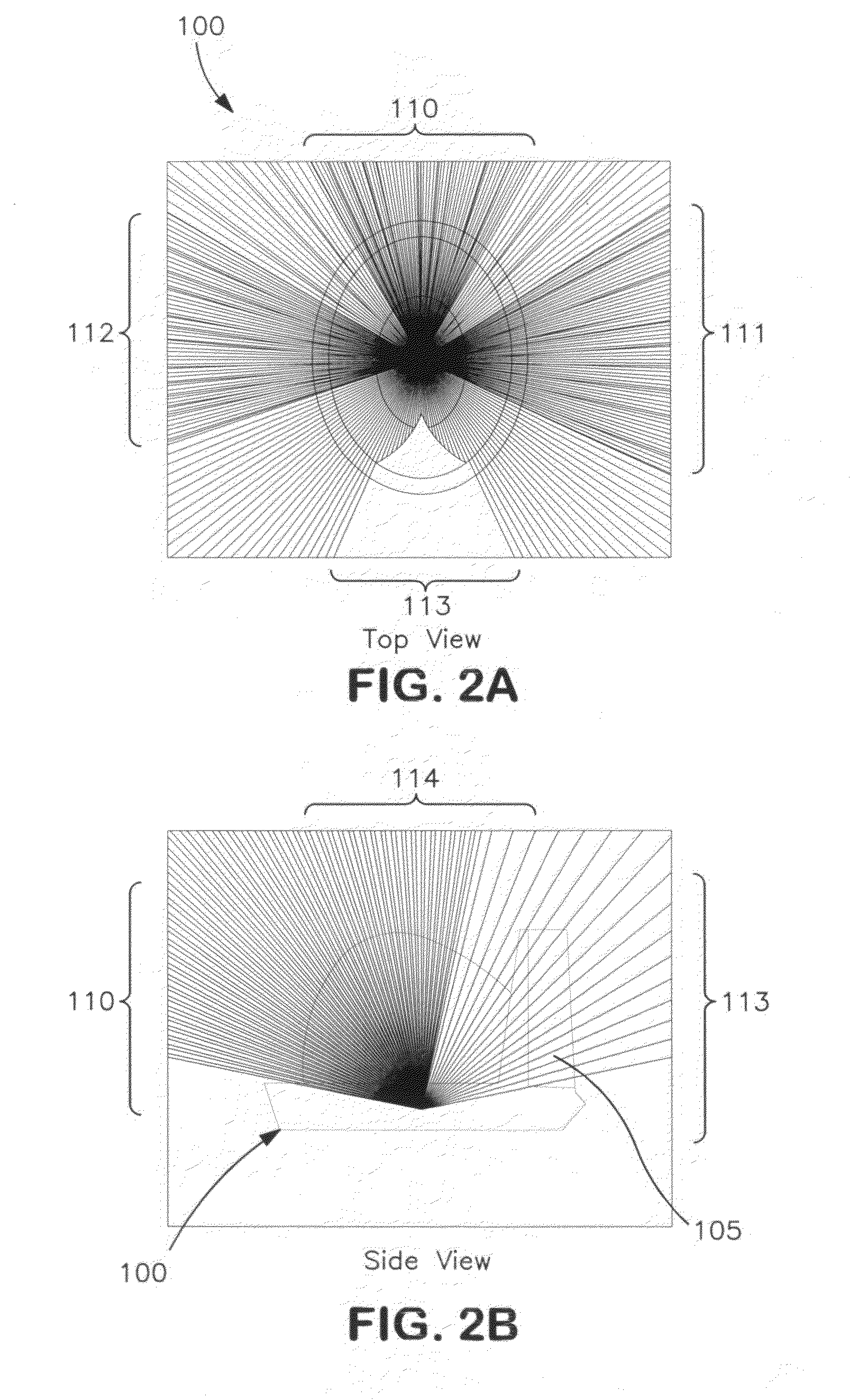Illuminating optical lens for light emitting diode (LED)
a technology of light-emitting diodes and illumination optical lenses, which is applied in the direction of lighting, instruments, lighting and heating apparatus, etc., can solve the problems of increasing the complexity of the package adaptation for efficient heat dissipation, requiring more precise current and heat management, and being relatively expensiv
- Summary
- Abstract
- Description
- Claims
- Application Information
AI Technical Summary
Benefits of technology
Problems solved by technology
Method used
Image
Examples
example
[0059]The following example illustrates the application of the above general design principles (e.g., including Snell's Law and total internal reflection (TIR)) to select a lens geometry having desired light focusing / spreading characteristics, for example when used in combination with a particular LED light source. Simulated light patterns for the lenses illustrated in FIGS. 6A-6D and 7A-7F are shown.
[0060]Lenses and their component surfaces are suitably designed computationally using conventional ray tracing / simulation software (e.g., LIGHTTOOLS software available from Optical Research Associates, Pasadena, Calif.) taking into account the physical properties (e.g., refractive index) of the lens material (e.g., PMMA or other polymer). A design paradigm is selected based on the manner in which the light emanating in generally all directions from a LED light source is desired to be focused / redirected by the lens (e.g., a desired final or far field pattern goal). For example, it may be...
PUM
| Property | Measurement | Unit |
|---|---|---|
| Length | aaaaa | aaaaa |
| Diameter | aaaaa | aaaaa |
| Diameter | aaaaa | aaaaa |
Abstract
Description
Claims
Application Information
 Login to View More
Login to View More - R&D
- Intellectual Property
- Life Sciences
- Materials
- Tech Scout
- Unparalleled Data Quality
- Higher Quality Content
- 60% Fewer Hallucinations
Browse by: Latest US Patents, China's latest patents, Technical Efficacy Thesaurus, Application Domain, Technology Topic, Popular Technical Reports.
© 2025 PatSnap. All rights reserved.Legal|Privacy policy|Modern Slavery Act Transparency Statement|Sitemap|About US| Contact US: help@patsnap.com



